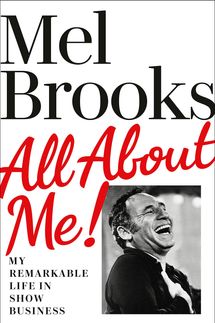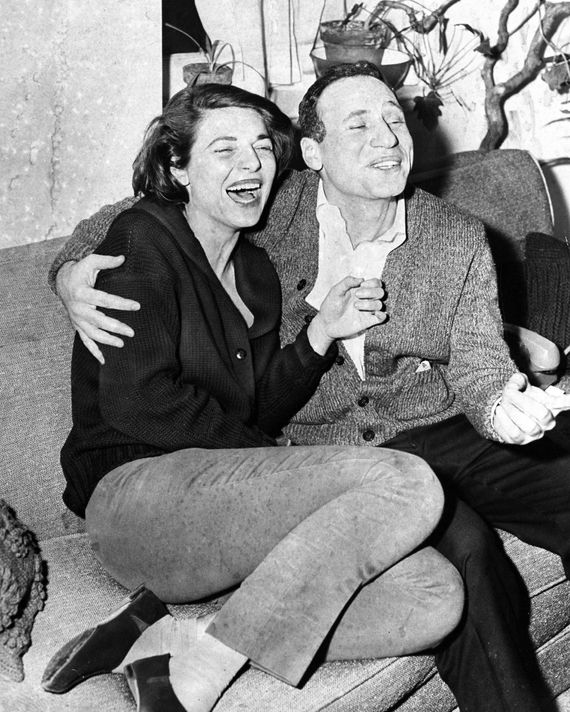
Few entertainers in history have influenced comedy as much as Mel Brooks has over the course of his 80-year (and running) career. Starting out as a teenage busboy and performer in the Catskills, the Brooklyn native went on to create an unmatched brand of comedy that blended cutting social commentary, satire, broad and bawdy humor, and Borscht Belt shtick. He helped shape and define several decades of film in the 20th century, with Brooks writing and directing (and often casting himself in) classics such as Young Frankenstein, The Producers, Spaceballs, and History of the World, Part I.
Offscreen, Brooks was one-half of an iconic Hollywood power couple. In this excerpt from his career-spanning and revelatory memoir, All About Me!, out November 30, Brooks discusses his great romance with Anne Bancroft, whom he met while taking a break from the production of a Broadway musical to attend the rehearsal of a Perry Como show. Brooks was instantly smitten — so much so that it also unleashed a creative fire within.
Excerpt From ‘All About Me!’
It’s 1961, and I’m working with Charles Strouse and Lee Adams on a Broadway show called All American. They had just had a huge hit with Bye Bye Birdie, and I was brought on to write the book for their new musical project.
One day, in the middle of writing, Charles, whom we all called Buddy, said, “Mel. Come with me. I have to go to a Perry Como show rehearsal at the Ziegfeld Theatre because I’m going to be playing the piano for Anne Bancroft. We’re rehearsing for a performance she is going to do at the Actors Studio later this week, and I have to find the right key for ‘Just You Wait (Henry Higgins).’ After I get the key, we’ll go back to work at my place.”
So I tagged along. After a few minutes, the guest star, Anne Bancroft, takes the stage. I’d never seen anything like it.
She was wearing a stunning white dress, and she was singing in a sultry voice a Gertrude Niesen favorite, “I Wanna Get Married.” She was just incredibly beautiful.
When the song was over, I leapt to my feet, applauded madly, and shouted, “Anne Bancroft! I love you!”
She laughed and shouted back, “Who the hell are you?”
I said, “I’m Mel Brooks! Nobody you’ve ever heard of!”
She said, “Wrong! I’ve got your 2000 Year Old Man record with Carl Reiner. It’s great.”
That was the beginning.
After Buddy got the key for their song, he said, “Let’s go back to my place.”
I said, “Forget it. I think I’m in love.”
I went backstage to see Anne. We started talking, and we never stopped.
I asked her, “What are you doing after this? Let’s go out for coffee.”
She said, “I’m sorry, I have an appointment. I have to see my agent, Bernie Seligman, at the William Morris office.”
I said, “Bernie Seligman? I have to see him too! I promised to get back to him two weeks ago.”
That was the beginning of a string of lies that I never stopped telling, just to be wherever she was.
I said, “Let’s share a cab.”
When we hit the street, I whistled for a taxi. She was really impressed with my whistle. “That’s the best taxi whistle I’ve ever heard,” she said.
True or not, it struck a chord. That was February 5, 1961. A date I’ll never forget.
Every night that week, I checked on where she would be. I found out who her friends were, and I called them. For some reason, they trusted me and actually told me her whereabouts.
I’d show up at a restaurant she was at or a nightclub or I’d even wangle my way into a big party if she was going to be there. By the end of the week, I said to her, “It’s amazing! We’re always showing up at the same places! It’s Kismet!”
She laughed and shouted back, “It’s not Kismet. You’re stalking me! If you wanna see me, why don’t you be brave and ask me for a date?”
So I did. She said yes, and I saw her almost every night.
She loved foreign movies; I loved foreign movies. She loved Chinese food; I loved Chinese food. Which leads me to a pretty funny story. Like I said, we saw each other almost every night, and after a while I told her that we couldn’t go to fancy places because I was simply not earning a lot of money at that time. As a matter of fact, even though I was writing a show for Broadway, you don’t see any money for that until the show actually opens.
So one night when we went to a Chinese restaurant, I was running low on cash. In those days, one of the least expensive dinners out was at a Chinese restaurant. Knowing my financial situation, when the check arrived Anne slipped me a $20 bill under the table. The check came to about 11 or 12 bucks. I gave the waiter the $20 and said expansively, “Keep the change.”
When we got outside, Anne hauled off and smacked me!
“What?” I said. “What!”
“Listen, big shot, don’t leave such a big tip with my money!”
She could hit pretty hard, so I never did that again.
Even though she was already a very successful actress and used to going to the best places, she’d join me anywhere I could afford. I remember one night she said, “Don’t worry. I believe in you. You’re talented. You’re gonna go places … you won’t always be poor.”
Like I said, this was not a great time for me as far as making money was concerned. I took almost any job I could get. Commercials were a lifesaver. One of the more interesting ones I ever did was the voice-over for a commercial for Bic Banana, which was the name of their new pen. It went like this:
“Don’t write with a peach. If you write with a peach, you’ll get a very wet letter. Don’t write with a prune. Words will come out wrinkled and dopey. Let’s face it: The only fruit you can write with is a banana. The Bic Banana. A fine-line marker. Not to be confused with a ballpoint. Writing a letter to your son, right? Right. Usually, I write, ‘Dear son, how are you? I’m fine.’ Write that same letter with a Bic Banana and you’ll get: ‘Dear Sonny, I miss your face, Mom.’ See what a nice letter it writes? And it comes in colors. Most fruits only come in one color, except grapes, which come in two colors and, of course, pits and pitless. Look, if you’ve got to write with a fruit, write with a Bic Banana! It’s only 29 cents. Your best buy in writing fruit. The Bic Banana. A different way to write!”
Still needing money to date Anne Bancroft in style, I did any project big or small that came my way. The Critic, a short animated film, was the brainchild of Ernie Pintoff, who was a cartoonist extraordinaire. He was a brilliant talent at both stills and animation, including New Yorker cartoons. He had an idea. He wanted to do a takeoff on Norman McLaren, a Canadian animator and cartoonist who did avant-garde creations. Ernie thought my interpretation of it with an English accent could be a clever idea.
But I said, “Wait a minute — what if I’m an old Jew who wanders into a movie house and, in between a double feature, accidentally sees Norman McLaren’s very avant-garde cartoon, and I try to make some sense of it?”
I said, “You do the animation and just let me ad-lib.” The Critic debuted at the Sutton Theater, an art house on Third Avenue and 57th Street. The audience loved it. It was about three and a half minutes long, and they laughed uproariously from start to finish. And miraculously enough, it went on to win the Academy Award for Best Short Subject (Cartoon).
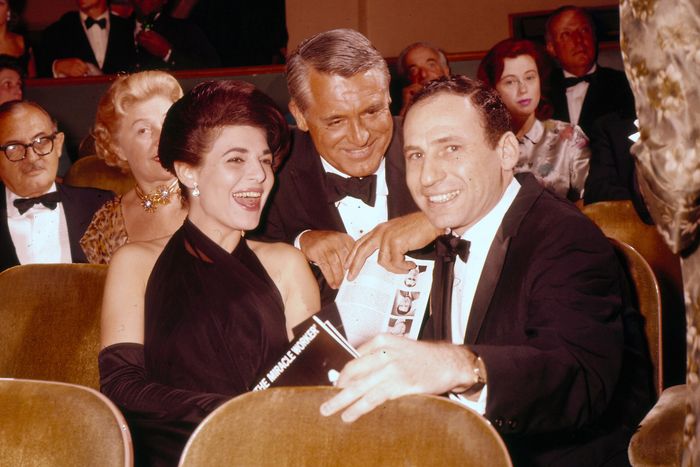
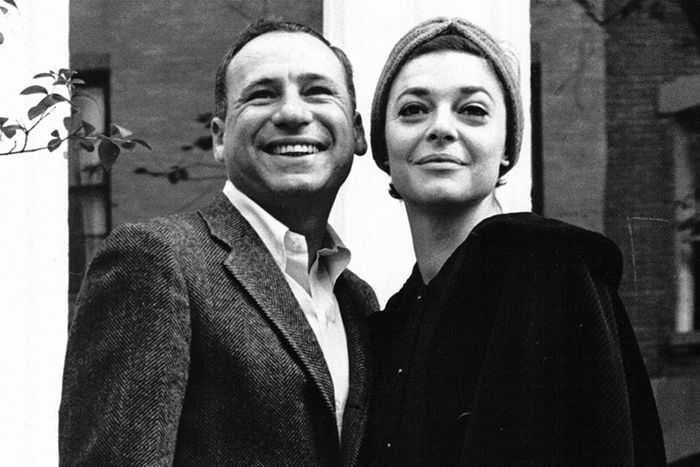
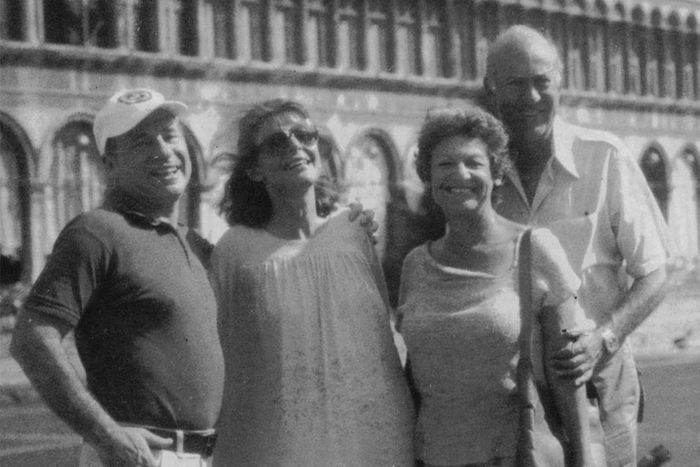
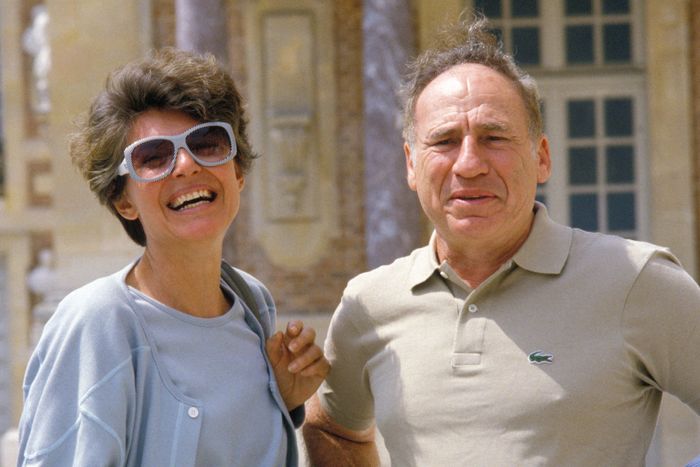
Anne and I were seeing each other every day and every night. I knew I wanted to marry her but couldn’t think seriously about it because I was still not earning enough money to support her. Not only in the style to which she was accustomed but, frankly, in any style.
And then in 1964 — a stroke of luck!
I was called by one of the partners of a successful showbiz company called Talent Associates. His name was Danny Melnick. He ran the company with David Susskind, the well-known host of The David Susskind Show. I went to their offices on Madison Avenue and 50th Street in the Newsweek Building. They said, “We need a show, and we want you to write it. Inspector Clouseau and James Bond are the biggest things in the world now. Got any ideas?”
They then asked if I would like to write it with anybody. They suggested a list of names. One of the names on the list was Buck Henry. I liked Buck Henry a lot and admired his talent. He would go on to write The Graduate and Heaven Can Wait. He could also shoot pool, and Talent Associates had taken out its conference-room table and replaced it with a pool table. What a perfect partner.
This was the year of the secret agent, both in film and television. Sean Connery was James Bond in the recent megahit Goldfinger, and Robert Vaughn and David McCallum were in The Man From U.N.C.L.E. I wanted to do a crazy, unreal comic-strip kind of piece about something besides a family. No one had ever done a show about a CIA agent who was also an imbecile. I decided to be the first. I called it Get Smart, based on the leading character’s name, Maxwell Smart.
Buck was very intelligent and extremely witty. The more we worked on the pilot, the funnier and more insightful we got. It took us about three and a half months to write the pilot script. We could have done it in a couple of weeks, but we loved playing pool. We would also play against the various guests who would visit the offices. If we thought we could beat them, we’d place bets and we’d make a little money on the side. Every once in a while, Peter Falk would stop by. He was a pool shark. He would always beat us and take our money. I think Peter Falk had one real eye and one glass eye, and having one eye was probably better for shooting pool than having two.
Originally, we did the pilot for ABC, but when they saw it, they said, “We pass.” I don’t know whether it was that they thought the production budget would be too high or if they simply didn’t go for it.
That turned out to be lucky for us because we had some really good friends at NBC. I ran into Grant Tinker, who was NBC’s head of West Coast programming at the time, at the Beverly Hills Hotel. He asked, “Do you have anything that fell on the floor from the Sid Caesar shows that you didn’t use? We’re always looking for new funny shows.”
I said, “It so happens that we have a brand-new funny show that’s just been passed on by ABC.”
He said, “Great! I’d love to see it!”
Without wasting a moment, we sent the pilot over to Grant Tinker’s team. They loved what we had done and bought the show immediately.
After the first season, NBC sadly informed us the ratings didn’t warrant its being picked up for another. They had made several new pilots and tried them out that summer, thinking one of them would be a good replacement for Get Smart. Once again, luck was with us; the new pilots didn’t test well. “The powers that were” at NBC decided to give Get Smart another shot.
From there on, it took off. Sometimes, getting the audience into the habit of watching a new show is just as important as its quality. If I had to do Get Smart again now, I would have maybe trimmed a few jokes but basically kept it the same. We never condescended to the lowest common denominator with the goal of getting the best ratings — the standard network concept of the lower the brain level of the script, the more people were going to watch it. Buck and I decided that it was only what made us laugh, and that would also make the world laugh.
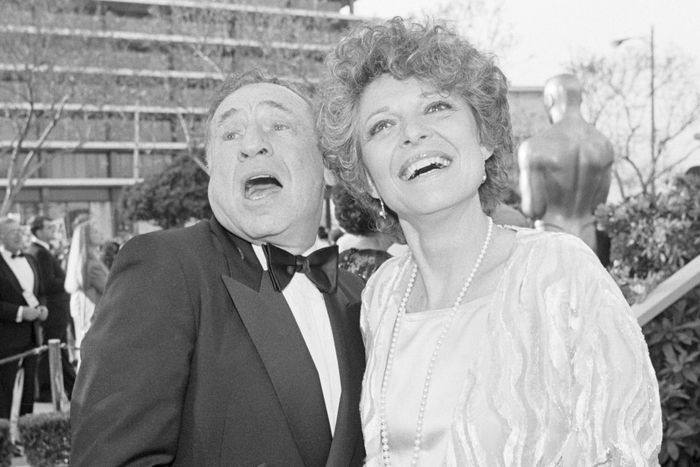
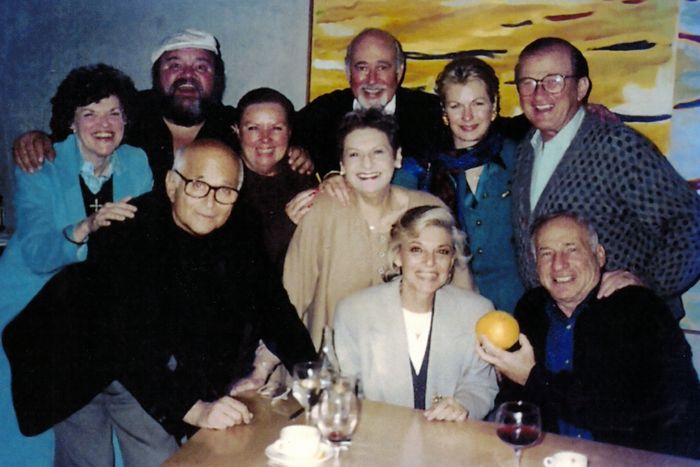
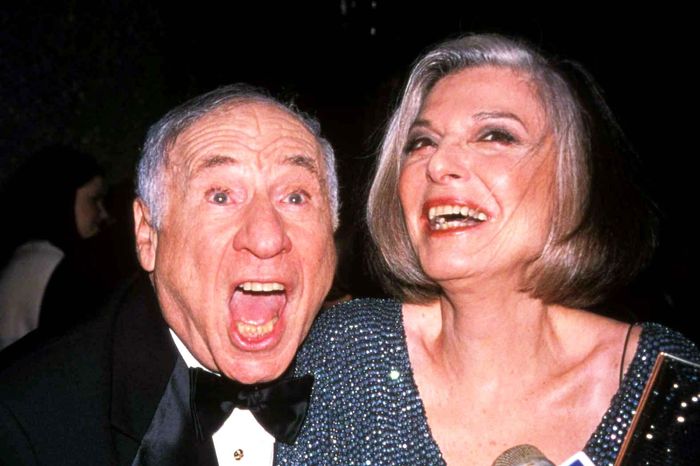
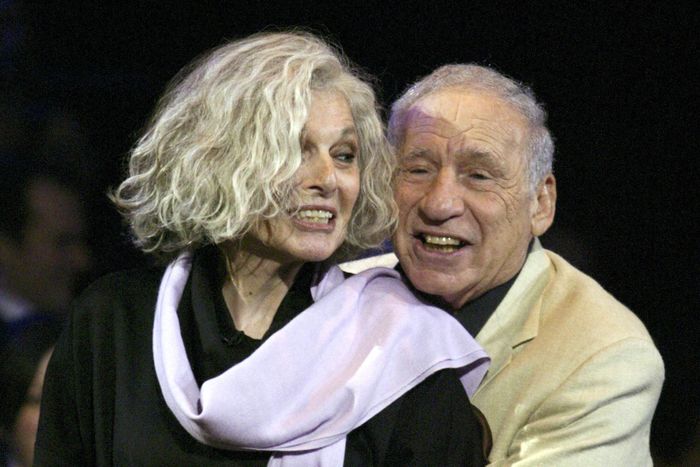
What Get Smart’s success meant for me personally was that at last I was getting a steady paycheck. So on August 5, 1964, I was able to marry Anne and pay the bills. I was not only able to take her out to dinner, but now she didn’t have to slip me money under the table to pay the check.
We went down to City Hall in lower Manhattan to get married by a justice of the peace. We were in such a hurry that I forgot two things: one, a ring, and two, a witness! We were lucky on the ring: Anne happened to be wearing hoop earrings, and she took them off and we used one of them for the ring. But a witness, where would I get a witness? There was a couple at City Hall that had just been married, so we asked to borrow their witness. They called over this kid named Samuel Boone.
And I walked up to him and said, “Sam, we don’t have a best man or anything. Could you stand up for us?”
He said, “Yeah. Sure.” Then he said, “But I want to warn you. Let me tell you about the clerk who is gonna marry you. He just married my friends, and he has a really crazy voice. We had a tough time not breaking up when we heard that loopy voice.”
I said, “Well, we’re in show business. We can deal with that, whatever it is.”
So we get in front of this clerk, and the kid was right. The clerk had the wackiest voice I had ever heard. He started with, “Dooo youuuu, Anna Marie Louise Italianoooo …”
And already we were in big trouble. For the rest of the ceremony, Anne and
I never looked at each other, because if we did, we knew we’d crash to the floor laughing. Somehow, we got through the ceremony. All’s well that ends well.
We took a cab back home to the Village, kissing each other and both kissing the earring that had become our wedding ring.
Adapted with permission from ALL ABOUT ME!: My Remarkable Life in Show Business, by Mel Brooks. To be published by Ballantine Books November 30.


